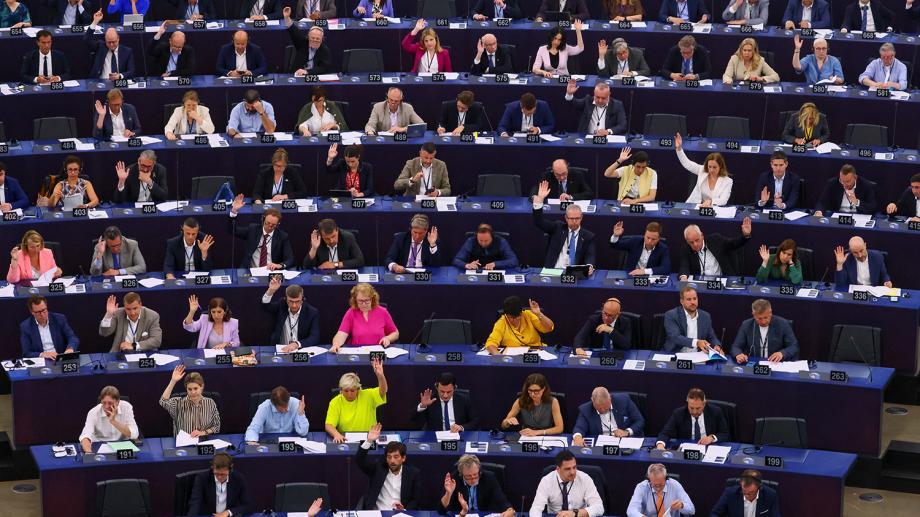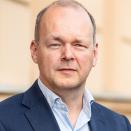风萧萧_Frank
以文会友欧洲的投票,欧洲的未来
https://ip-quarterly.com/en/europes-vote-europes-future
6 月份的欧洲议会选举将是迄今为止最重要的选举。
Henning Hoff 2024 年 3 月 22 日
Henning Hoff 是《INTERNATIONALE POLITIK QUARTERLY》的执行主编。
2023 年 6 月 13 日,欧洲议会成员在法国斯塔斯堡的欧洲议会全体会议上投票。
如果您必须向选民解释投票为何重要,这也许不是一个好兆头。就欧洲议会而言,长期以来,人们一直认为它无关紧要,投票率低,而且倾向于将选举用于抗议投票,这表明两者之间存在基本的脱节。
现在情况不再如此。正如欧盟选举网站所说,议会在斯特拉斯堡和布鲁塞尔两地办公,“通过的法律影响着每个人:大国和小社区、强大的公司和年轻的创业公司、全球和地方”。即将于 6 月 6 日至 9 日举行的选举将是迄今为止最重要的选举,对于确定欧盟的未来方向具有重要意义。
民意调查预测将向右转。民族主义民粹主义者、新右翼和极右翼聚集在欧洲保守党和改革党 (ECR) 和身份与民主 (ID) 团体中,其中包括玛丽娜·勒庞的法国国民联盟 (RN) 和德国选择党 (AfD),他们将获益。
不幸的是,中间派政党的反应是加大反移民言论的力度,而这总是倾向于帮助极端分子。但仍有时间扭转局势,包括在德国,并抑制那些假装复杂问题有简单答案的人的虚假诱惑。因此,考虑到利害关系,至少有希望选民这次会三思而后行。正如戴夫·基廷在我们的封面部分指出的那样,“抗议投票给极右翼可能会让选民在 6 月份感觉良好。但一年后可能不会那么好。”
中右翼欧洲人民党 (EPP) 是欧盟委员会主席乌尔苏拉·冯德莱恩的政治家园,该党未来可能面临棘手的决定,拉法尔·博松和尼古拉·冯·翁达尔扎认为。然而,中间派很有可能在欧洲守住。与此同时,沙欣·瓦莱 (Shahin Vallée) 主张利用竞选活动进行更诚实和前瞻性的辩论,讨论欧盟未来的金融架构。他认为,如果不做出改变,欧洲将走向财政悬崖。
下一届欧洲议会是欧盟未来拼图中的一块;其成员国如何互动以打造共同的未来是另一个问题。目前法德因乌克兰战略而争吵不休,将谁领导欧洲以及如何领导欧洲的问题推到了风口浪尖。Jana Puglierin 和 Jacob Ross 从相反的角度来探讨这个问题,分别关注巴黎和柏林。John Kampfner 指出,在组织欧洲未来安全方面,目前存在“英国大小的漏洞”。
正如欧盟创始人之一让·莫内 (Jean Monnet) 所预测的那样,认为“欧洲将在危机中成长”是陈词滥调。不管这是否是陈词滥调,危机确实已经到来。现在,选民和政策制定者必须挺身而出。
Europe's Vote, Europe's Future
https://ip-quarterly.com/en/europes-vote-europes-future
The European Parliament elections in June will be the most consequential yet.

Not anymore. As the European Union’s election website says, the parliament, which divides its time between Strasbourg and Brussels, “adopts laws that affect everyone: large countries and small communities, powerful companies and young start-ups, the global and the local.” The upcoming elections on June 6 to 9 will be the most consequential yet—and of great importance when it comes to setting the European Union’s future course.
Polls predict a rightward shift. The nationalist populists, the New Right and far right assembled in the European Conservatives and Reformer (ECR) and the Identity & Democracy (ID) groups—which include Marine Le Pen’s France’s Rassemblement National (RN) and Germany’s Alternative für Deutschland (AfD)—are in for gains.
Unfortunately, centrist parties are reacting by ramping up anti-immigration rhetoric, which always tends to help the extremists. But there is still time to turn the tide, including in Germany, and to dampen the false lure of those who pretend that there are simply answers to complex problems. So there is at least some hope that voters may think twice this time, given what’s at stake. As Dave Keating points out in our cover section, a “protest vote for the far right may make voters feel good in June. But it may not feel so good in a year’s time.”
The center-right European People’s Party (EPP), the grouping of which is the political home of European Commission President Ursula von der Leyen, may face tricky decisions in the future, argue Raphal Bossong and Nicolai von Ondarza. Yet, there’s a good chance that the center will hold in Europe. Shahin Vallée, meanwhile, makes the case for using the election campaign for a more honest and forward-looking debate about the EU’s future financial architecture. Without changes, Europe is headed for a fiscal cliff, he argues.
The next European Parliament is one piece in the puzzle of the EU’s future; the way its member states interact to forge a common future is another. The current Franco-German falling-out over Ukraine strategy is putting the question of who leads Europe and how center stage. Jana Puglierin and Jacob Ross approach it from the opposite sides, focusing on Paris and Berlin respectively. And John Kampfner points to the current “UK-size hole” when it comes to organizing Europe’s future security.
It's a cliché to argue, as one of the EU’s founders, Jean Monnet, predicted, that “Europe will be forged in crisis.” Cliché or not, the crisis has certainly arrived. Now voters—and policymakers—must rise to the occasion.
Henning Hoff is Executive Editor of INTERNATIONALE POLITIK QUARTERLY.





